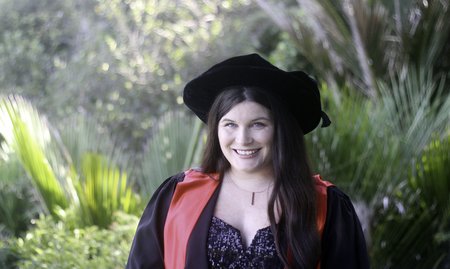
The research, by Dr Zoë Port and Professor Jarrod Haar of Massey’s School of Management, explores current work and wellbeing outcomes across a range of age cohorts within the Aotearoa New Zealand workforce.
A significant takeaway from the study is that younger workers, aged 35 years and under, have scored the worst across all work and wellbeing outcomes except for job mobility - the perception of available job opportunities. This younger cohort are shown to be experiencing the highest levels of job stress, job anxiety and job depression, while scoring the lowest for job happiness.
Dr Port says the results show a concerning trend within the nation’s workforce.
“We’re seeing the youngest in our workforce experiencing the lowest job satisfaction and work-life balance, which has a knock-on effect, as they are the leading group reporting the highest turnover intentions and job mobility. The data highlights an age disadvantage in our workforce which could be attributed to younger employees having less work experience and fewer personal and job resources to draw upon, meaning less support and ways of coping in their careers. It could also reflect the uniquely challenging context that today’s younger generations are inheriting.”
Dr Port says scoring high in the turnover intent and job mobility categories reveals the younger cohort have the highest perception of job opportunities elsewhere and are most likely to act on this.
“It’s relative that our youngest workers are less likely to feel satisfied in their job and more likely to think of quitting, but it is one positive to see in the data that younger employees are being the most optimistic about job mobility. The data pertaining to potential turnover intent is interesting in the sense that even if younger workers are having a rough time of it, they’re at least likely to hesitate around leaving for greener pastures!”
“This may also reflect what we’re hearing about different generational attitudes to work, with younger generations feeling less bound to staying with one organisation for a long period of time – something older generations have placed importance on.”
Data for the study was collected from 709 New Zealand employees across a range of careers and industries representative of the overall workforce in terms of age, gender and geographic location.
The age group shown to be experiencing the highest levels of positive workplace wellbeing are workers aged 51 and above. This age group fared the best across all outcomes – reporting the most positive work outcomes and lowest levels of job-related mental health concerns.
With the turbulent workforce climate unlikely to settle any time soon, Dr Port says this research can give workplaces more insight into the issues faced by younger workers and help them to consider how to improve the environment to better support their employees.
“Wellbeing and positive work environments are important for all age groups, but employers should be mindful that younger workers appear to be more vulnerable to poorer wellbeing in the workplace and have shown to be in need of additional support in this area. As this cohort also appear to be more willing to leave for opportunities elsewhere, organisations should be taking a good look at what they have available to retain younger workers in an ageing workforce.”
Related news
Exploring the current drivers of workforce turnover
A recent study has revealed some surprising insights relating to turnover in Aotearoa New Zealand’s workforce while exploring the continued effects of the Great Resignation.

For a workplace to be healthy, it needs to be safe
The latest episode of Conversations that Count – Ngā Kōrero Whai Take tackles the big and often misinterpreted issue of workplace wellbeing.

Bringing multiple job holding out of the moonlight
Dr Zoë Port is a Lecturer in the School of Management at the Massey Business School, and also Co-Director of the Healthy Work Group research team.
